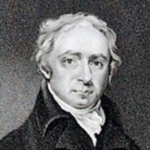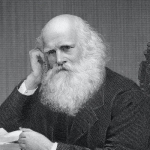The castle clock had tolled midnight:
With mattock and with spade,
And silent, by the torches’ light,
His corse in earth we laid.
The coffin bore his name, that those
Of other years might know,
When earth its secrets should disclose,
Whose bones were laid below.
“Peace to the dead” no children sung,
Slow pacing up the nave,—
No prayers were read, no knell was rung,
As deep we dug his grave.
We only heard the winter's wind,
In many a sullen gust,
As, o’er the open grave inclined,
We murmured, “Dust to dust!”
A moonbeam from the arch’s height
Streamed, as we placed the stone;
The long aisles started into light,
And all the windows shone.
We thought we saw the banners then,
That shook along the walls,
Whilst the sad shades of mailèd men
Were gazing on the stalls.
’Tis gone! again on tombs defaced
Sits darkness more profound;
And only by the torch we traced
The shadows on the ground.
And now the chilling, freezing air
Without blew long and loud;
Upon our knees we breathed one prayer,
Where he slept in his shroud.
We laid the broken marble floor,—
No name, no trace appears,—
And when we closed the sounding door,
We thought of him with tears.





















Comment form: